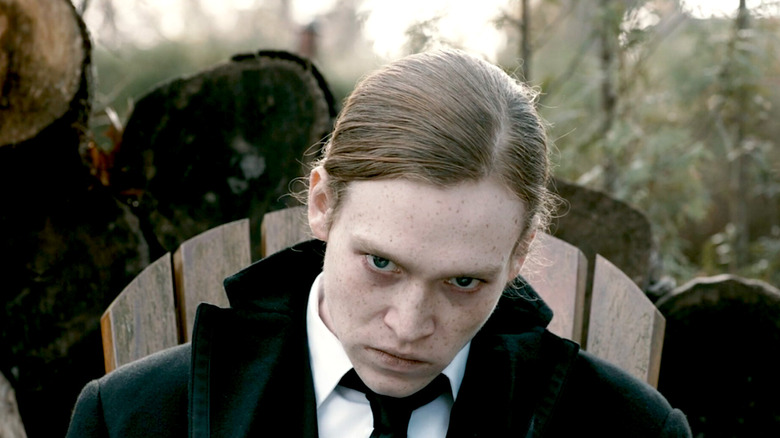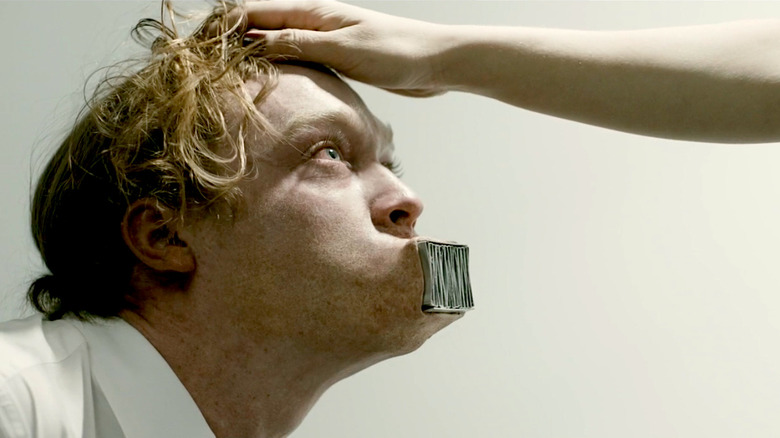Brandon Cronenberg Saw Antiviral's Blood And Gore As A Sort Of 'Therapy'
When discussing body horror, David Cronenberg is the first director that often comes to mind. The man has made a name for himself with all the gross things he's done to the human body in many of his films. His recently released "Crimes of the Future" showcases some pretty messed up stuff, but the director has been exploding heads and turning people into insects from the very beginning of his career. Long live the new flesh, amirite?
This is why it's no surprise that Cronenberg's son, Brandon Cronenberg — who happens to be a filmmaker as well — also has a taste for the guts and the gore. The younger Cronenberg released his latest film, "Infinity Pool" at the Sundance Film Festival earlier this year, and it looks to be one hell of a gory good time. Before this, though, he captured the horror hearts of many with "Possessor" about an assassin who kills her assignments by possessing the bodies of others. Both films lean into that classic Cronenbergerian bloodshed that shocks just as much as it grosses us out, a skill the Canadian filmmaker has been perfecting ever since his first film "Antiviral" was released in 2012.
"Antiviral" is a total trip. The movie takes place in a futuristic society where fandom has taken things to a whole new level, and people now pay good money to purchase and be infected with the exact strains of illness and disease contracted by their favorite stars. Syd March (Caleb Landry Jones) is a young man who works at one of these clinics and gets mixed up in a deadly infection gone wrong. The movie has a lot to say about capitalist society and obsession with fame, and though the gore is delightfully disgusting, Brandon Cronenberg saw it as therapeutic as well.
A particular strain of therapy
If you ask horror fans why they love watching people get chopped up and chased to their deaths, many of us might say that it brings us a sort of calm. And while that might sound absolutely psychopathic to some, it seems there is something therapeutic in being able to place any and all anxieties onto a tangible — and entirely fictional — frightening experience. Catharsis at its best, baby! Filmmaker Brandon Cronenberg seems to share a similar sentiment since he talked about how his first film "Antiviral" utilized gore that he hoped would be restorative for viewers.
In an interview for Crash, Cronenberg said, "I thought the scenes could almost be like a kind of therapy, by associating this culture with images that are uncomfortable and repulsive." So, in other words, ordering a nice slice of Hannah Geist cell steak is meant to freak us out into helping us overcome our devotional impulses. But Cronenberg also recognizes that the gore in "Antiviral" operates on another level. "It's also part of the satire," he explained. "When herpes, which is normally repulsive, becomes suddenly desirable, that's when the power of celebrity seems very extreme. When the more repulsive something is, the more attractive it becomes. Exaggeration is a big part of the film."
So whether or not you are watching "Antiviral" because you despise celebrity worship or because you find the movie's heavy reliance on the grotesque to be oddly satisfying, the movie is always meant to spark conversation around what it means to call yourself a fan.

